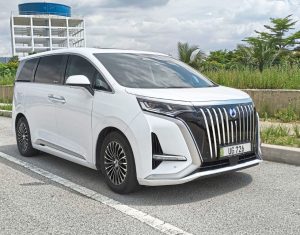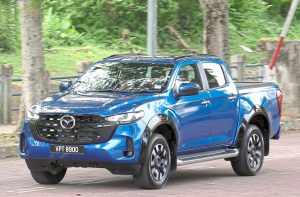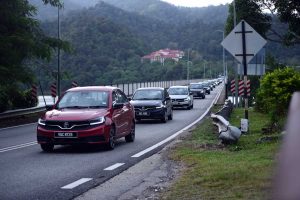Tesla and Volvo to pause output due to Red Sea disruption
By REUTERS | 12 January 2024
BERLIN: Tesla will suspend most car production at its factory near Berlin from Jan. 29 to Feb. 11, the company said late on Thursday, citing a lack of components owing to shifts in transport routes because of attacks on vessels in the Red Sea.
The partial halt to production is evidence that the crisis in the Red Sea has hit Europe's largest economy.
The attacks by Iranian-backed Houthi militants, in solidarity with Palestinian Islamist group Hamas in its fight against Israel in Gaza, have disrupted one of the world's most important shipping routes but US electric vehicle maker Tesla is the first company to disclose a resulting interruption to output.
Companies including Geely, China's second-largest automaker by sales, and Swedish home furnishing company Ikea have warned of delays to deliveries.
Frankfurt-listed shares in Tesla, which also cut prices of some new China Model 3 and Model Y cars, traded 1.7% down by 1017 GMT.
Volvo Cars, which is majority-owned by Geely, will next week pause output at its plant in Gent in Belgium for three days due to delays caused by the security situation in the Red Sea.
A delivery of gear boxes has been delayed, a spokesperson for the Sweden-based auto maker said, the second company after Tesla to disclose an interruption to production.
Car deliveries, production targets and its other European plant in Gothenburg, Sweden, were not affected by the pause, the spokesperson said.
"The armed conflicts in the Red Sea and the associated shifts in transport routes between Europe and Asia via the Cape of Good Hope are also having an impact on production in Gruenheide," a Tesla statement said.
"The considerably longer transportation times are creating a gap in supply chains."
Analysts expect that other automakers could also suffer fallout from the Red Sea conflict.
"Relying on so many key components from Asia, and specifically China, has been a potential weak spot in any automaker’s supply chain. Tesla relies heavily on China for battery components, which need to be transported to Europe through the Red Sea, putting production constantly at risk," said Sam Fiorani, vice president at AutoForecast Solutions, which tracks automotive supply chains and production.
"It can’t be believed that they’re alone; only the first to reflect the issue."
The disruption adds pressure on Tesla at a time when it is also fighting a labour dispute with Swedish trade union IF Metall over a collective bargaining agreement, sparking sympathy strikes from a host of unions across the Nordic region.
Unionised workers at Hydro Extrusions, a subsidiary of Norwegian aluminium and energy company Hydro, stopped work on components for Tesla car products on Nov 24. The workers are members of IF Metall.
Tesla has not responded to requests for comment on whether the Hydro Extrusions strike was affecting output.
The company's statement on Thursday said that production would resume in full on Feb 12. It did not respond to requests for further detail on which components were missing or how it would restore production by then.
The attacks by Iranian-backed Houthi militants have forced the world's top shipping companies to avoid the Suez Canal, the fastest maritime route from Asia to Europe, which accounts for about 12% of global maritime traffic.
Tesla does not plan to change its production schedule for its Shanghai factory, which also produces cars for Europe, said a source familiar with the matter. The factory is set to shut for a week over China's annual Lunar New Year holiday as it has done in previous years.
Tesla did not respond to a request for comment on the Shanghai factory. The company, which Reuters has reported has a strategy of using price adjustments to influence demand and achieve best cost efficiency for its production plans, cut prices for some of its new China Model 3 and Model Y cars today.
BMW said today that its supply chain was not affected by the attacks on merchant vessels in the Red Sea.
Attacks by Yemen's Houthi militants on ships in the Red Sea are disrupting maritime trade through the Suez Canal, with some vessels re-routing to a much longer East-West route via the southern tip of Africa.
Tags
Autos Tesla
Reviews

7.6
Denza D9 Premium AWD: Alternative indulgence

8.1
Mazda BT-50 High Plus: Big and bold

7.2
BMW 218 Gran Coupe Sport: First step into the next level

7.5
Suzuki Fronx: Cute city slicker

Nissan Serena e-Power: Big easy in the city

8.2
BYD Atto 2: Urban by nature

2026 Proton Saga: Right gear for the job

7.6
Honda Africa Twin Adventure Sports ES: Rugged refinement
Videos

BYD Atto2's rotating centre display

Free & Easy Media Test: Latest Proton X50 Flagship to Kuanta...

Zeekr Space Sunway City Video
